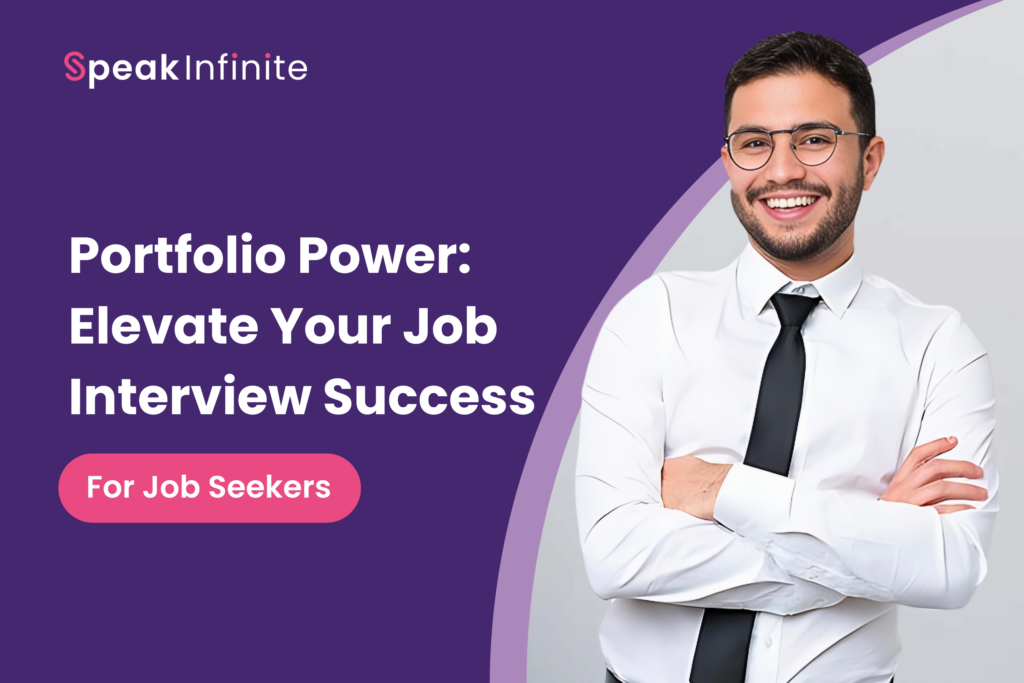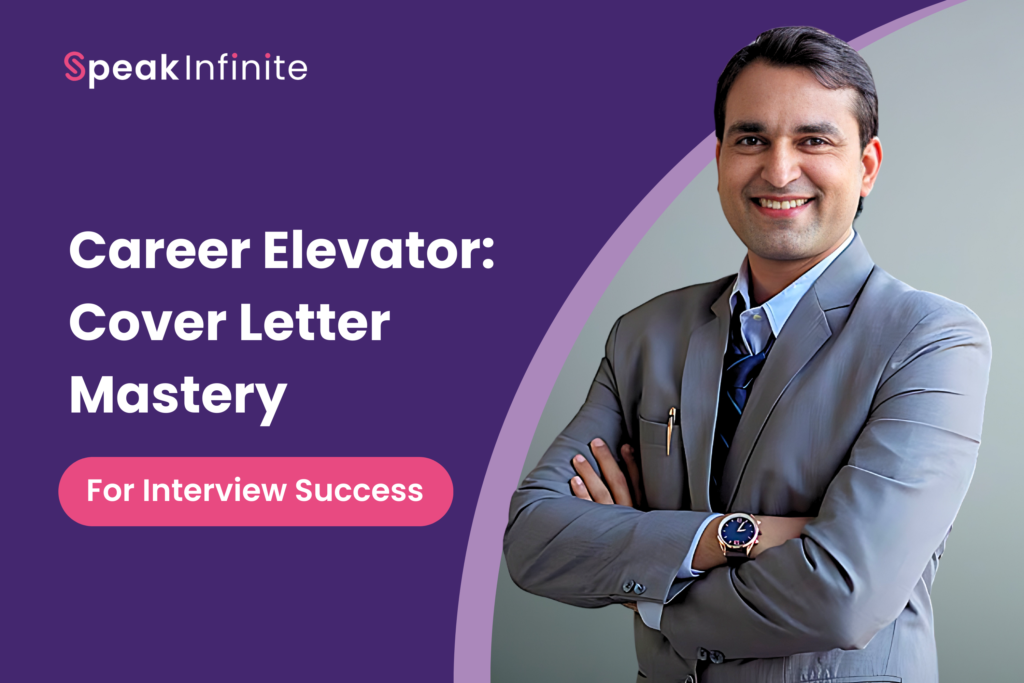During job interviews, candidates face numerous questions from the hiring entities. However, it is essential to recognize the value of the candidates’ inquiries. By asking thoughtful and constructive questions, candidates can showcase their knowledge and interest in the position and gain a better understanding of the company and the role they are applying for.
This comprehensive guide aims to break down the details of asking insightful questions during interviews. Therefore elevating this aspect from a simple procedure to a purposeful conversation. By untangling the complexities of crafting questions, job seekers can showcase their enthusiasm and curiosity and gain insights into the company’s culture, past projects, clients, and job particulars. This detailed guide aims to provide a holistic knowledge of the strategic art of posing thoughtful questions. Besides this, it helps in equipping job seekers with the knowledge and skills.

Navigating the Strategic Landscape – The Crucial Importance of Asking Questions
Asking questions in an interview is not just a part of formal communication; it is an opportunity for candidates to showcase their enthusiasm, genuine interest, and strategic thinking. By weaving questions seamlessly into the interview, candidates demonstrate their preparedness and gain critical insights into the company’s inner workings and expectations. While preparing questions to ask the hirers, a candidate can research and gain valuable insights about the company’s culture, functioning, past projects, working policy, market, and specifics of the role. Example: Imagine you’re interviewing with a tech company. Ask about their approach to innovation. It shows interest and sparks a meaningful conversation.
During the pre-interview phase, it is crucial to research and frame questions to ask in an interview strategically. This process helps candidates gain valuable insights about the company and the job role, allowing them to appear confident and enthusiastic in the interviewer’s presence. Properly preparing questions can significantly impact a candidate’s success during the interview process.
The Initial Preparedness – The Role of Pre-Interview Research
The keystone of asking insightful questions lies in a thorough pre-interview investigation. Pre-interview research plays a crucial role in preparing the candidates for an interview and adequately presenting themselves to receive the desirable outcome of the discussion. The pre-interview research acts as a guiding principle, providing insights into the company’s history, values, clients, recent projects, and particulars of the job role. This holistic knowledge empowers candidates to tailor their responses and questions, showcasing genuine interest and alignment with the organization’s culture. Furthermore, researching and gathering insights about the specifics of the role allows candidates to strategically align their skills, presenting a tailored narrative that resonates with the interviewer’s expectations. Example: If they value work-life balance, ask about flexible work arrangements. Show them you align with their culture.
Overall, pre-interview research forms the foundation stone for candidates to confidently navigate interviews, positioning themselves as well-informed and enthusiastic contributors to the potential employer’s team. This comprehensive understanding enables candidates to craft questions that showcase their genuine interest and highlight their commitment to becoming an invaluable asset to the organization.
Crafting a Symphony – A Structured Approach to Formulating Queries
Adopting a structured approach to formulating queries before an interview is crucial, similar to preparing the foundation for a prosperous and influential professional meeting. It involves a detailed approach to crafting questions beyond mere inquiries. It serves as a strategic tool to convey preparedness and genuine interest. This methodical preparation demands candidates gain insights into the company’s background, values, and role complexities. Ultimately, this comprehensive understanding empowers candidates to position themselves as well-informed individuals and tailor their queries to resonate with the company’s ethos. Example: Craft a question about a recent product launch. It’s specific and relevant to the company’s market position.
This structured approach transforms the interview from a mere formal conversation into a dynamic exchange of information. Basically demonstrates the candidate’s strategic insight and dedication to a considerate interaction with the potential employer.
By understanding the delicate balance between specificity and broad relevance, candidates can craft inquiries. Eventually, it helps to showcase their understanding of the company, and their genuine interest, and present themselves as the perfect fit for the job.
Exploring the Company’s Soul – A Culture Inquiry Concerto
Company culture is a powerful force that shapes professional satisfaction and success. Conducting a cultural exploration of a company’s foundational principles before an interview is a thorough investigation of the organization’s values. The strategized method requires candidates to delve into the collective values, team dynamics, and work environment that define the company’s identity. By planning a series of thoughtful culture-related questions, candidates aim not only to understand the complexities of the workplace but also to align themselves with the company’s values. Example: Inquire about team-building activities. It shows your interest in fostering a collaborative culture.
This strategic approach transforms the interview into a conversational and dynamic interaction, showcasing the candidate’s intention to be an integral part of the organizational fabric and contribute meaningfully to its collective spirit.
By crafting and asking ideal questions, a candidate can assess his fit for the role and examine the alignment of his future goals and aims with the values and objectives of the organization.
The Symphony of Job Roles and Expectations
Comprehending the details of a role holds vital importance for both the employer and the candidate. For the employer, a clear understanding of the specific responsibilities, qualifications, and expectations associated with the position is essential. On the candidate’s side, a comprehensive understanding of the role ensures alignment of skills, experiences, and aspirations. This mutual clarity streamlines the recruitment process and sets the stage for a successful and fulfilling professional partnership. It allows both parties to engage in the hiring process transparently. Thus ensuring that the selected candidate is qualified and motivated to contribute meaningfully to the organization’s objectives.
By demonstrating a comprehensive understanding of the role, job seekers convey their readiness and position themselves as individuals who contribute meaningfully to the organization.
Charting a Course for Professional Crescendo – Career Development Inquiries
Asking questions about the current role and future organizational developments is a sign of forward-thinking in a candidate. These questions aim to uncover the company’s dedication to the professional growth of its staff. Candidates can align their aspirations with the company’s developmental programs by exploring opportunities for skill development, advancement paths, and mentorship programs. From the candidate’s perspective, these inquiries examine the potential for career progression and personal growth within the organization. Simultaneously, for employers, it signals the candidate’s commitment to long-term engagement and their proactive approach to continuous improvement, fostering a collaborative and mutually beneficial professional journey.
Unraveling the Tapestry of Team Dynamics
Effective collaboration is an essential competency employers seek in candidates, and it undoubtedly plays a critical role in their success. Teamwork in a company is vital for collaborative problem-solving, innovation, and leveraging diverse skills. Collaboration promotes efficiency, morale, and open communication, creating a dynamic and resilient work environment aligned with company goals.
By bringing inquiries about teamwork to light, job seekers can showcase their interpersonal skills, adaptability, and understanding. This in turn shows the importance of a collaborative environment, contributing to the symphony of harmonious professional relationships. Example: Ask about team-building activities. Showcase your appreciation for teamwork and understanding of its importance.
The Final Movement: Questions about the Interview Process and Next Steps
It’s crucial to end the interview by asking about the next steps in the hiring process.” The Final Movement” in the interview process is a crucial stage where candidates ask questions about the company and discuss the next steps. It’s a mutual exchange of information, helping both parties align expectations for the post-interview phase and potential collaboration.
By doing so, candidates exhibit professionalism and a proactive attitude, leaving a positive and lasting impression that echoes beyond the final notes of the interview. Example: Express gratitude and reiterate enthusiasm. It leaves a positive lasting impression.
Navigating Specialized Scenarios: Tailoring Questions to Unique Situations
The candidates must tailor their inquiries to specific specialized scenarios according to a particular role, niche, market, or situation. It allows the candidates to address and gain insights on specific questions and have clarity for better post-interview communication. Example: Tailor questions about industry-specific challenges. Show understanding of the unique demands of the role.
As the interview concludes, the lingering questions testify to the candidate’s engagement, strategic insight, and genuine interest.
This comprehensive guide has shed light on asking insightful questions and transforming a routine interview into a dynamic and mutually beneficial conversation. With the correct inquiries, job seekers can confidently navigate the interview process. Therefore leaving an indelible mark beyond their responses to the employer’s queries.
FAQs
Prepare a mix of 5-8 thoughtful and relevant questions. Quality matters more than quantity.
It’s advisable to wait until a job offer is extended before discussing salary and benefits. Focus on questions that demonstrate your interest in the role and company.
While it’s essential to be attentive, it’s acceptable to seek clarification or delve deeper into a topic discussed during the interview.
Ask about team dynamics, collaborative projects, and how success is celebrated within the organization to gain insights into company culture.
Yes, asking questions demonstrates your ongoing interest and can provide an opportunity to address any concerns the interviewer may have.
It’s acceptable to politely inquire about feedback, showing a genuine interest in self-improvement. However, respect the company’s policies if they can’t provide detailed feedback.



